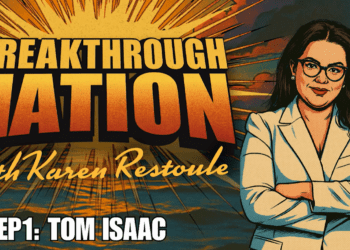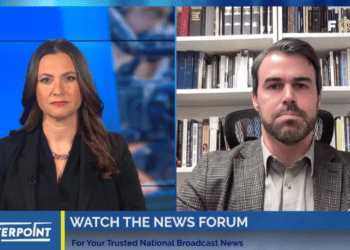Writing in the Globe and Mail, Macdonald-Laurier Institute Senior Fellow Ken Coates says that new Assembly of First Nations Chief Perry Bellegarde is Canada’s best chance for a better relationship between Aboriginal and non-Aboriginal Canadians.
But, Coates says, it’s also up to the federal government to create a path toward co-operation with the AFN.
“To a degree that too few Canadians realize, the nation’s future requires a constructive and honest relationship with First Nations”, Coates writes.
Coates also spoke with several media outlets about what Bellegarde’s election means for the AFN and Canada.
By Ken Coates, Dec. 12, 2014
There may be no tougher political job in Canada than that just assumed by Perry Bellegarde, newly elected national chief of the Assembly of First Nations.
The national chief is better known than most premiers, deals with an assembly of autonomous and free-minded chiefs larger than the House of Commons, and handles dozens of the most contentious political files in the country. He copes with high expectations but has little direct authority, no real governance role, and surprisingly few financial or other resources. He only represents First Nations, which excludes Inuit, Métis and non-status aboriginals. Moreover, he represents his people only through their elected chiefs, and there are many internal divisions, including between treaty and non-treaty FNs.
And yet, the AFN and Mr. Bellegarde still represent the best opportunity for a constructive relationship with the federal government and with non-aboriginal Canadians. The whole country has a great deal of stake in his political success.
Over the past three decades, national chiefs Ovide Mercredi, Phil Fontaine, Matthew Coon Come and Shawn Atleo have been outsized political figures, working with chiefs from across the country to move often-reluctant national governments and to produce real outcomes for their people. Their accomplishments have been significant: constitutional recognition of aboriginal and treaty rights, aboriginal self-government, major victories in the Supreme Court of Canada, devolution of federal responsibilities to indigenous governments, and far greater aboriginal participation in natural resource development.
But the achievements – and they are truly formidable – have not yet addressed the fundamental challenges. The national chief represents more than 630 First Nations, many with communities racked by extreme poverty, high unemployment, poor educational outcomes, housing shortages, shocking rates of incarceration and significant problems with drug and alcohol abuse. The underlying issues – the vestiges of residential schools, decades of government domination and paternalism, racial discrimination and social marginalization – remain largely unaddressed.
Mr. Bellegarde’s life will be complicated by fundamental differences of opinion on the role of the individual First Nations and their chiefs. Mr. Atleo discovered during the debate over education funding that the chiefs demand a central role in decisions. The federal government, while also eager to move forward, prefers to deal at a national level, limiting consultation with individual First Nations.
Mr. Bellegarde must also walk a tightrope between two fundamentally different priorities. For many First Nations, the emphasis should be the expansion and recognition of aboriginal and treaty rights, whether through the courts – the preferred route in recent years – or negotiations. The other approach, personified by Mr. Atleo, emphasizes practical outcomes and the exercise of identified rights, and focuses on economic development, improved health and educational outcomes and stronger First Nations governance. The First Nations who take this approach, likely a majority, also believe there are more rights to be proven and asserted, but they want healthy communities first. On Wednesday, in a speech aimed at the audience of chiefs, Mr. Bellegarde made it clear that rights gained in recent years are going to change the First Nations political agenda going forward.
What we need is a meeting of the minds.
Beyond the tensions within First Nations, non-aboriginal critics complain about First Nations holding the economy ransom over development projects, and lob indiscriminate accusations of corruption at First Nations governments. At the same time, some First Nations leaders insist they can shut down pipeline construction, reassert full control of traditional territories and extract more money from government. Mr. Bellegarde has to bridge this formidable divide. The national interest has to be brought into line with First Nations rights and aboriginal aspirations.
Mr. Bellegarde is a strong and accomplished leader. He does not need instructions on how to proceed. One hopes, however, that he can quickly articulate a vision of a new relationship with non-aboriginal Canadians. It is equally vital that he convince the First Nations chiefs that his combination of strong advocacy for rights and practical, short-term solutions can attract government funding and public support. Relaunching discussions around educational funding is the obvious place to start, but a major statement on collaborative approaches to resource development would also help.
Canada as a whole made a serious mistake in not providing Mr. Atleo with more support during his time in office. It is imperative that Prime Minister Stephen Harper’s government provide early evidence that it can work with Mr. Bellegarde. A more open approach on education would help.
Outside of government, it is vital that non-aboriginal Canadians reach out to Mr. Bellegarde and the AFN. From provincial and territorial governments through the churches, the private sector and organizations of new Canadians, we must extend hands of friendship and reconciliation. To a degree that too few Canadians realize, the nation’s future requires a constructive and honest relationship with First Nations.
Ken Coates is a senior fellow with the Macdonald-Laurier Institute.





